Urgent Dental Care You Can Trust
Emergency Dentist in Austral
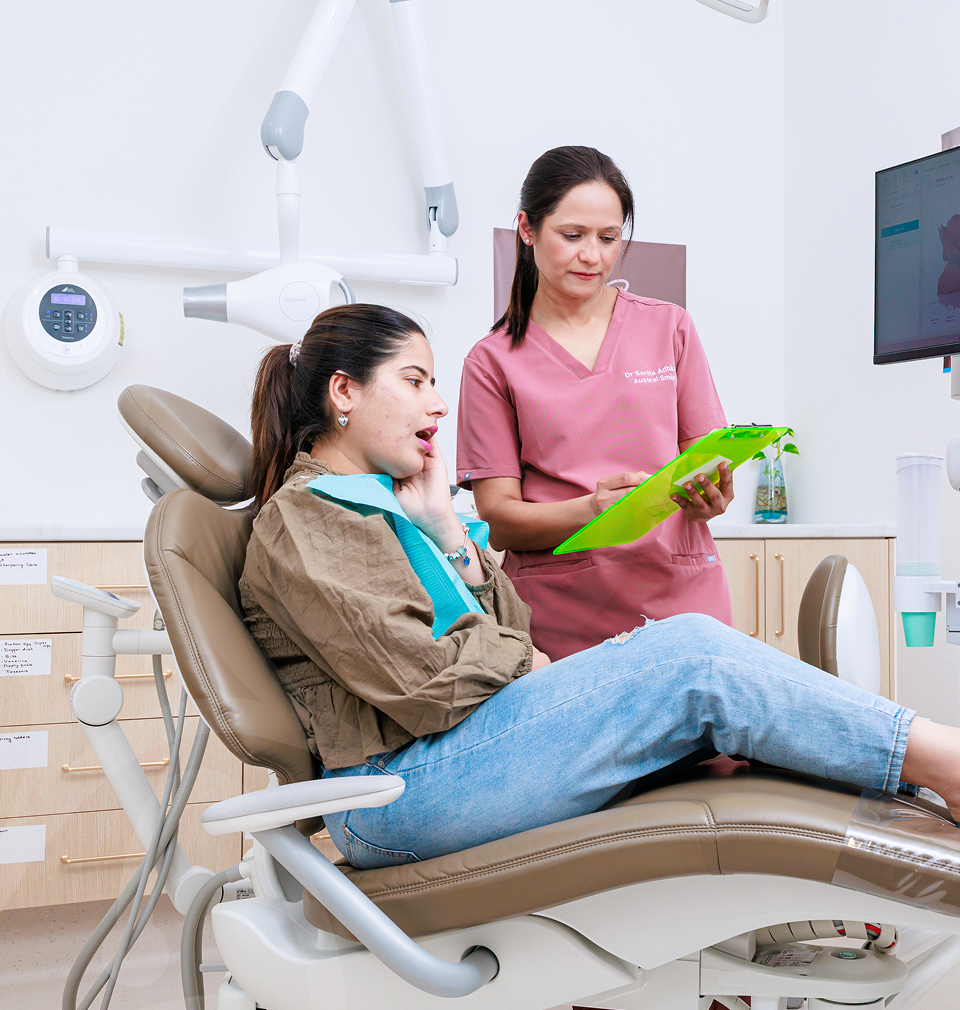
How Emergency Dental Care Can Help You
Visiting an emergency dentist in Austral means a qualified team can examine the issue, provide appropriate care, and help ease discomfort. Every situation is different. Early attention can often reduce the need for more complex procedures later.

Signs Your Dental Problem May Need Urgent Care
Persistent Tooth Pain
A sharp or throbbing ache that doesn't settle may point to infection or nerve irritation. If it keeps you awake or worsens, contact your dentist promptly.
Swollen Face or Gums
Swelling in the jaw, cheek, or around a tooth can signal infection. Without timely care, it may become more uncomfortable or spread to surrounding areas.
Knocked-Out Tooth
If a tooth has been knocked out, prompt care is essential. Keep it moist, avoid touching the root, and contact a dentist immediately.
Broken or Loose Dental Work
A loose crown, cracked filling, or dislodged wire can cause pain or injury. Prompt care may help protect other teeth and lower the chance of complications.

Get Peace of Mind with Urgent Dental Care in Austral
Timely Attention
Early care can reduce pain, help limit complications, and clarify your dental concern through professional assessment and appropriate next steps.
Same-Day Options
Austral Smiles offers same-day appointments for urgent needs where possible. This allows quicker relief and helps prevent the problem from becoming more complex.
Calm, Supportive Care
The team works to help you feel comfortable throughout your visit. Gentle communication and clear explanations are part of every emergency appointment.
Easy Access
Austral Smiles is nearby and open until 7 PM on Tuesdays. Same-day emergency care may be available. Please call us to check availability.
Common Dental Emergencies We Can Help With

Severe Toothache
Ongoing pain or sensitivity may indicate decay or infection. It’s important to act early to reduce discomfort and avoid further dental problems.

Chipped or Broken Teeth
Cracks or breaks can expose the inner tooth and lead to pain. A prompt visit helps protect the tooth and maintain your bite.

Knocked-Out Tooth
If a tooth is knocked out, avoid touching the root. Keep it moist and contact the clinic immediately for time-sensitive care.

Lost or Broken Dental Restorations
A damaged filling, crown, or veneer can leave the tooth exposed. Seeking attention early may ease discomfort and help maintain oral function.

Dental Abscess
A painful lump or swelling near the gums may point to infection. You may also notice a bad taste, fever, or general discomfort.
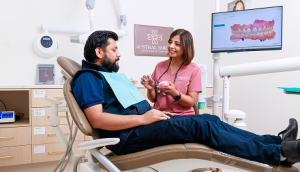
Bleeding Gums
Bleeding that doesn’t stop after gentle brushing or flossing may suggest gum disease or injury. It is essential to have it checked promptly.

Loose Crown
A loose crown can affect your bite and lead to sensitivity. Keeping the area clean and seeing a dentist promptly is important.

Loose Implant
Movement around an implant site isn’t normal and should be examined quickly. This may help reduce the risk of further complications.
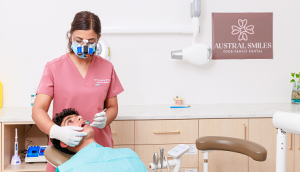
Sharp Tooth
A jagged or rough edge can irritate the tongue or cheek. Temporary measures may help, but a visit is still recommended.
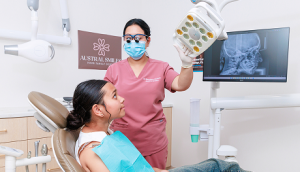
Mouth Ulcers
Painful or slow-healing ulcers can make eating and speaking difficult. If they persist for more than a week, have them assessed.
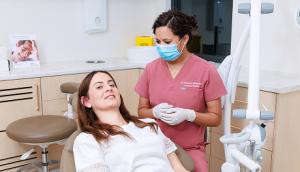
Broken Dentures
A cracked or damaged denture may affect how you eat or speak. Avoid using it until a dentist can assess the fit.

Loose Wire Retainers
A bent or loose wire may poke soft tissue and cause discomfort. Temporary relief is possible, but follow-up care is advised.

Book Your Emergency Appointment With Us

Calm, Clear Communication
In an emergency, clear communication matters. We’ll walk you through what’s happening, what your options are, and how we can help so you understand your treatment options clearly and feel supported throughout the emergency visit.
Flexible Payment Options
We understand emergencies can feel overwhelming, emotionally and financially. Our flexible payment options are here to help you get the urgent care you need without extra stress.
Long-Term Focus, Not Just Quick Fixes
While we prioritise immediate relief, we also think ahead. We focus on treatments that not only ease today’s pain but also protect your smile’s health and strength for the future.
Experienced Dentists
With more than 30 years of combined experience, our team is trained to provide prompt, compassionate care to relieve discomfort and support your recovery.
Here When You Need Us Most
Dental emergencies don’t wait for a convenient time, and when they happen, you need fast, calm, and professional care. At Austral Smiles, we’re ready to help you through urgent situations with same-day appointments when available and an experienced team that puts your comfort first.
Here When You Need Us Most
Dental emergencies don’t wait for a convenient time, and when they happen, you need fast, calm, and professional care. At Austral Smiles, we’re ready to help you through urgent situations with same-day appointments when available and an experienced team that puts your comfort first.
 Calm, Clear Communication
Calm, Clear Communication
 Long-Term Focus, Not Just Quick Fixes
Long-Term Focus, Not Just Quick Fixes
While we prioritise immediate relief, we also think ahead. We focus on treatments that not only ease today’s pain but also protect your smile’s health and strength for the future.
 Flexible Payment Options
Flexible Payment Options
We understand emergencies can feel overwhelming, emotionally and financially. Our flexible payment options are here to help you get the urgent care you need without extra stress.
 Experienced Dentists
Experienced Dentists
With more than 30 years of combined experience, our team is trained to provide prompt, compassionate care to relieve discomfort and support your recovery.

Helpful Information for First-Time Visitors



Payment Options
We offer a range of flexible payment options to help make your dental care more manageable.
We Accept All Health Funds


What to Expect During Your Visit
1Prompt Assessment
2 Targeted Treatment
3 Clear Aftercare Instructions
Meet the Experienced Dentists at Austral Smiles
Get to know our friendly dental team, each dedicated to providing personalised care to improve your smile and oral health.
Dr. Sushmita Dahal
DEN0001028720, General Dentist
With over 18 years of experience, Dr. Sushmita Dahal has worked across private, public, and not-for-profit clinics in Australia. She combines technical precision with creative skills in dental artistry and smile rehabilitation.
Learn MoreDr. Mamata Maharjan
DEN0001586185, General Dentist
Dr. Mamata Maharjan has over 15 years of clinical experience in Sydney’s public and private sectors. She focuses on preventive dentistry, root canal therapy, and clear aligner orthodontic treatments for adults and teens.
Learn MoreDr. Bandana Shakya
DEN0001148239, General Dentist
A graduate of Progressive Orthodontic Seminars (USA, 2015), Dr. Bandana Shakya offers implants and orthodontic treatments. She provides Invisalign®, ClearCorrect®, Spark®, ClearPath® aligners and performs complex wisdom teeth extractions. She also completed implant training with Osstem.
Learn MoreDr. Sarita Adhikari
DEN0001677199, General Dentist
Since graduating in 2004, Dr. Sarita Adhikari has delivered preventative, cosmetic, and restorative dental care. She promotes patient education, empowering individuals to take active roles in managing their long-term oral health.
Learn MoreAustral Smiles
average rating
ADA
Member

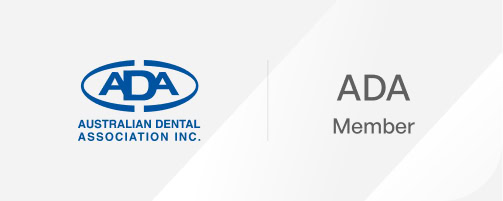
Answers to Your Emergency Dental Concerns
What counts as a dental emergency?
If you’re looking for an emergency dentist in Austral, it’s helpful to understand what qualifies as a dental emergency and when to seek care. Getting help early may prevent discomfort from getting worse.
Below are some common examples and why they may need urgent care:
1. Severe tooth pain
You may experience ongoing or intense pain, especially if it interferes with sleep or daily activities. This type of pain can be caused by deep decay, inflammation, or nerve-related concerns. If over-the-counter medication offers little relief, it’s a sign that further care is needed.
2. A knocked-out or loose tooth
If a tooth has been dislodged due to an injury or feels unusually loose, prompt care is important. Early support may help maintain surrounding teeth and lower the chance of further issues.
3. Cracked, chipped, or broken teeth
When a tooth breaks or chips, it may expose sensitive inner layers. Such exposure can result in sharp edges, sensitivity, or difficulty chewing. Without care, the damage may worsen.
4. Swelling in the face, gums, or jaw
Swelling may be linked to infection, injury, or pressure from an impacted tooth. It may start as mild puffiness but can spread, making it harder to eat or speak.
5. Dental abscess
An abscess may appear as a painful lump or swelling near a tooth or the gum line. You might also notice a fever, a bad taste in your mouth, or pain when opening your jaw. Such symptoms can be a sign of a serious infection.
6. Bleeding that does not ease
If bleeding continues after applying pressure for several minutes, especially after a dental procedure or injury, it may indicate a concern that needs prompt attention.
7. Lost crown, filling, or veneer
When a crown, filling, or veneer falls out, the exposed tooth surface can feel sensitive or uncomfortable. This may also make eating or speaking more difficult until it is replaced.
8. Problems with braces, wires, or retainers
Orthodontic wires or brackets that become loose or broken can rub against the inside of the cheeks or gums. This may cause irritation, small cuts, or difficulty chewing.
9. Mouth ulcers or soft tissue injuries that are getting worse
Sores, cuts, or ulcers inside the mouth that grow in size, remain painful or fail to improve after several days may require professional review. This is especially true if eating or brushing becomes difficult.
If you’re experiencing any of these issues, seeking dental care promptly can help reduce discomfort and lower the chance of complications. Same-day emergency appointments are available through the team at Austral Smiles.
Can the ER help with tooth pain?
The emergency department can assist if tooth pain is linked to serious symptoms, such as facial swelling, high fever, or difficulty swallowing. These cases may involve infection spreading beyond the mouth.
Hospital staff may offer pain relief or prescribe antibiotics if infection is suspected. However, they do not perform dental procedures and often refer patients to a dentist for follow-up.
For tooth pain without medical complications, it is usually more suitable to contact a dental clinic directly. A dentist can assess the cause and recommend the next step.
Will a dentist pull an infected tooth the same day?
In some situations, a dentist may remove an infected tooth during the first visit. This depends on your symptoms, the condition of the tooth, and whether swelling or infection is present.
If swelling or pus is visible, medication may be recommended first to reduce the infection. Diagnostic imaging may also be needed before any removal.
Depending on the recommendations made following your initial visit, you might be able to schedule a same-day dentist appointment in Austral.
How much does it cost to pull a tooth?
The cost of tooth removal varies depending on several factors. In Austral, these are the main factors that influence the price:
1. Type of extraction
Simple extractions usually range from $200 to $600. Complex extractions can range from $600 to $2,200. Complex cases may involve teeth that are broken, decayed below the gum line, or close to nerves.
2. Condition and position of the tooth
Teeth that are damaged, positioned far back in the mouth, or partially covered by gum or bone may require more time and care.
3. Imaging requirements
Some patients may need X-rays or 3D scans before the extraction. These images help assess the roots, surrounding bone, or sinus position, and they can add to the total cost.
4. Health cover or eligibility for support programmes
If you have a private health fund or qualify for the Child Dental Benefits Schedule (CDBS), your out-of-pocket costs may be reduced. This depends on your insurer and any available balance.
Wisdom teeth may also be removed. Costs fall within the same ranges depending on whether the removal is simple or complex.
Austral Smiles provides itemised quotes before your procedure so you can plan clearly.
Are dental emergencies covered by health funds?
Many health funds cover emergency dental care, depending on your policy and waiting periods. Extractions, X-rays, and temporary dental services may fall under general or major dental categories.
Policies differ. Some may contribute more than others. There may also be an annual limit or a gap payment.
If your child is eligible for the Child Dental Benefits Schedule (CDBS), some or all of the cost may be covered. This programme applies to children ages 0–17 and can be used for services such as pain relief, X-rays, and extractions.
Austral Smiles offers itemised quotes so you can confirm your cover with your provider.
What should you do if the tooth pain is unbearable?
If tooth pain becomes intense and cannot be managed at home, it’s important to contact a dentist as soon as possible. Severe pain may be linked to infection, swelling, or nerve irritation.
You can take these steps:
- 1. Contact a dental clinic. Let them know the pain is severe. Same-day emergency care may be available.
- 2. Use over-the-counter pain relief. Take the recommended dose as directed on the label. Do not place medications directly on the gum, as this can damage the soft tissue.
- 3. Avoid hot or cold food and drinks. Extreme temperatures can increase sensitivity. Eat soft, room-temperature foods until you receive medical attention.
- 4. Keep your head elevated. Using an extra pillow while lying down can help reduce pressure and ease discomfort.
- 5. Rinse with warm salt water. Mix half a teaspoon of salt in a glass of warm water. Gently swish it around the mouth to ease gum irritation.
How do you know if a tooth has an abscess?
A dental abscess is a pocket of pus caused by a bacterial infection. It can form in the gum or near a tooth root. Only a dentist can confirm it, but some signs may suggest a problem:
- You may feel sharp or throbbing pain near one tooth, which may come and go or worsen with pressure.
- The gum, face, or jaw may become swollen or tender to the touch.
- A small, pimple-like bump may appear on the gum and may release fluid or pus when pressed.
- There may be a bad taste in the mouth or persistent bad breath that does not improve with brushing.
- The affected tooth may become sensitive to hot or cold food or drinks.
- Biting or chewing on that side may cause discomfort or a dull ache.
- You may feel feverish or generally unwell, especially if the infection is spreading.
Some abscesses develop slowly, while others appear suddenly. If you notice these symptoms, it is essential to book a dental visit.
Emergency dental services in Austral are available to help with sudden pain, swelling, or injuries that need urgent attention.
Can a dental abscess make you sick?
Yes, a dental abscess can affect your general health if the infection spreads. This is more likely if it is not addressed early.
Possible signs include:
- You may develop a fever or feel hot and flushed, especially if the infection is progressing.
- Swelling may spread to the face or neck, making movement or eating more difficult.
- You might feel tired or unwell, even if the tooth pain improves temporarily.
- It may become hard to open your mouth or swallow due to inflammation or pressure.
- Lymph nodes under the jaw or neck may swell and feel sore when touched.
These symptoms may indicate the infection is affecting nearby tissues. Medical or dental care may be needed right away.
If you need urgent dental care in Austral, booking early can help manage discomfort before it worsens.
Will an emergency dentist drain an abscess?
In some cases, draining an abscess may help reduce pressure and ease discomfort. The decision depends on the location and size of the infection.
During your visit, the dentist will:
- Examine the area and check for swelling or fluid build-up by gently pressing on the gum or jaw.
- Recommend X-rays or scans if needed to see how far the infection has spread.
- Drain the abscess if it is close to the surface and can be accessed safely during the visit.
- Start medication to control the infection, particularly if drainage is not immediately possible.
- Provide advice for home care, including how to manage discomfort while the area heals.
Austral Smiles regularly assists patients with pain, swelling, or suspected abscesses. Emergency care often begins by easing symptoms, with further steps arranged as needed.
What happens if a dental abscess bursts in your mouth?
If an abscess bursts, you may notice a sudden release of bitter or salty fluid. Some swelling may go down, but the infection is still present.
Here’s what you might experience:
- Fluid drains into your mouth and leaves a bad taste, sometimes accompanied by slight relief from pressure.
- Pain or discomfort may decrease, but the area can remain swollen, tender, or warm.
- The gum may still appear red or inflamed, but it may begin to swell again.
- The infection may continue to spread if not assessed and managed by a dental professional.
Even if symptoms seem to improve, the underlying issue remains. It’s important to see a dentist to check the area and discuss the next steps.
The team at Austral Smiles can explain what’s happening and guide you through your options. A timely visit can make a difference in your comfort and recovery.




